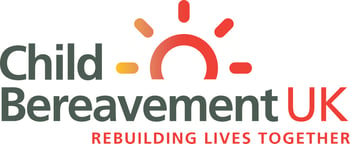"1 in 29 children have been bereaved of a parent or sibling – that equates to one in every class." - Child Bereavement UK
I used to specialise in difficult children. I ran schools, remand homes, off-site units, pupil referral units, hospital schools… you name it. It may sound contrary but I really enjoyed this work. I relished the ‘craic’ you could get with some of these children/young people and I also enjoyed the intellectual challenge they posed.
Yes, I know the second part of that sentence may surprise some people but trying to understand and deal with the causes of ‘unacceptable’ behaviour requires thought and analysis. You can find simple ways to ‘control’ behaviour but actually managing it, let alone changing it, is more difficult.
What research says about pupil bereavement
One thing that I became aware of was the number of these ‘difficult’ children who had a significant bereavement in their background. At a superficial level I started to collect data in a random way. It was not scientific but, for me, it started to illustrate a causal link between bereavement and a number of behaviours which are not socially acceptable.
This is not to say that bereaved children will have problems nor that bereavement in itself is the cause of behaviour problems. It is much more complex than that. Bereavement is another risk factor that can have an impact.
Those who have suffered bereavement at a personal level will have an understanding of the complexity of emotions that it raises. We all deal with it differently. For some, the grief becomes utterly overwhelming whilst others, at a superficial level at least, cope relatively well. We are all different with different histories and access to different support infra-structures.
If a child is bereaved of a parent or sibling whilst they are at school does it have an impact? Well, for some it does. There is research on the impact of bereavement but much is confusing and some contradictory. A longitudinal study of children bereaved before the age of 16 by the Childhood Wellbeing Research Centre (2011) gave the following insights:
- They are more likely to leave school at the age of 16
- They are more likely to leave without qualifications
- They report higher levels of truancy
- They are more likely to be suspended
- They are significantly more likely to show symptoms of depression
In this longitudinal study, they are also less likely to have a successful transition to adult life with higher levels of unemployment and less skilled work.
Again, this is not inevitable and every person’s response is unique and context bound. There is, however, one view that seems to permeate the literature; children need an effective network of support.
The key people to provide this support are the remaining parent and family but sometimes these are fractured before or after the death. Schools cannot act as substitute parents in these situations – it would be neither feasible nor appropriate. Schools and teachers do, however, need to have an understanding of how death impacts upon children, what they can do and how to find additional support. At the most cynical level, it will help with the school’s results.
How can schools and teachers help support pupils dealing with bereavement?
I worry that the school timetable is so full that space cannot be made for young people to deal with other important issues in their lives. Teaching should be about far more than cramming facts, figures and data. I can state that when, as a young teacher, I was responsible for teaching ‘O’ level English (the supposed Gold Standard) I would wander off the curriculum for weeks on end and our results usually exceeded the local grammar schools.
The purpose of teaching is, in part, to support the transition to adult life. If we see the ‘outcomes’ in terms of being able to regurgitate a narrowly defined curriculum as the purpose then we are failing a whole generation of children and, I would argue, society as a whole.
I had a very close friend who was chronically ill when she was young and nearly died on a few occasions; as a consequence she had a different perspective on school. School did not meet her needs and she ran away when she was 15 to trapes across Europe. She returned to education in her mid-20’s and did an access course to university where she gained a 1st. She went on to become one of the best and most effective educators I have known. She did, tragically, die too early but I learnt from her that it is our professional duty to understand the needs of individuals and be flexible in the ways that we meet them.
As compassionate people, we need to understand how to support a child through the initial stages of grief and as professionals we need to understand that bereavement is a longer term risk factor. We need to prepare for this and, where necessary, have appropriate plans. Bereavement is an educational issue and we need to deal with it.
Teachers can find support from a number of dedicated charities and organisations. I am personally grateful to Child Bereavement UK for taking the time and effort to develop a free Group that can be accessed by all IRIS Connect users. This Group contains a wealth of material and suggestions which can support you. Importantly, it also includes template policies for various types of schools. Remember the figure at the top of this blog; statistically, one child in every class will have a significant bereavement whilst at school and I would personally urge every school to have an appropriate policy and action plan in place.
If you have an IRIS Connect account, simply click here to join the Group for free.
If you're not yet an IRIS Connect user, there will be a range of resources available from a number of charities in your area, including Child Bereavement UK.


Leave a comment:
Get blog notifications
Keep up to date with our latest professional learning blogs.